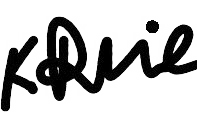Mastercard Modern Slavery and Human Trafficking Statement
The Modern Slavery Act 2015 (UK) and the Australian Modern Slavery Act 2018 (Cth) together require businesses to disclose information relating to their efforts to assess and address the risks of modern slavery (including forced labour and human trafficking) in their operations and supply chains. The following statement of Mastercard Incorporated and its applicable, consolidated subsidiaries (named at the end of this document) (collectively, “Mastercard” or the “Company”) responds to these requirements and outlines our efforts in this regard during the fiscal year ended December 31, 2024.
Our business, organizational structure and supply chains
Mastercard is a global technology company in the payments industry. We connect consumers, financial institutions, merchants, governments, digital partners, businesses and other organizations worldwide by enabling electronic payments and making those payment transactions secure, simple, smart and accessible. Using secure data and networks, partnerships and passion, our innovations and solutions help individuals, financial institutions, governments, and businesses realize their greatest potential. We enable transactions for our customers through our payment network in more than 150 currencies and in more than 220 countries and territories.
Our stock is listed on the New York Stock Exchange under the symbol “MA” and our website is www.mastercard.com. Our global headquarters are in Purchase, NY, USA, and we have regional headquarters in each of Asia/Pacific, Europe, Latin America/Caribbean and Middle East and Africa.
As of December 31, 2024, we employed approximately 35,300 persons globally, of which approximately 69% were employed outside of the U.S. in more than 90 countries. Our employee base is predominantly full-time. To supplement our employee base, we also engage contingent workers through third party suppliers to meet specific needs.
We do not manufacture goods, operate factories, or handle raw materials or commodities. We do, however, source products and services from suppliers globally. Our primary supply chain categories include marketing and advertising, information technology, office services, professional services, and consumer benefits. We estimate that there are more than 7,000 suppliers in our supply chain.
Governance and policies
Mastercard’s commitment to human rights is informed by key principles recognised in international human rights standards such as the Universal Declaration of Human Rights (UDHR), the International Labour Organization (ILO) Declaration on the Fundamental Principles and Rights at Work and the United Nations Guiding Principles on Business and Human Rights. Our commitment to environmental and social responsibility — and our core value of operating ethically, responsibly and with decency — is directly connected to our continuing success as a business. Our annual Impact Report available Mastercard Corporate Social Responsibility & Sustainability shares Mastercard’s approach to powering economies and empowering people. Our executive leaders work cross-functionally to address relevant human rights issues and to support our culture of decency. Given the range of human rights to protect, these efforts span the organization and are shared by members of our management committee and their teams. Our Chief Sustainability Officer briefs the Nominating and Corporate Governance Committee (NCG Committee) on human rights as necessary.
NCG Committee oversees, in coordination with the other committees of the Board, as applicable, the Company’s environmental, social and governance policies and programs, including those related to corporate responsibility, environmental stewardship and human rights. The NCG also oversees periodic litigation and other legal matters that could have a significant impact on the Company as well as the Company’s public policy activities. Progress on our people strategy, along with talent-related risks and opportunities, are reviewed quarterly with the Human Resources and Compensation Committee and annually with our full Board of Directors. Additionally, our Board and its committees are tasked with overseeing other human capital management matters on a regular basis, such as ensuring that processes are in place for maintaining an ethical corporate culture; overseeing key human resources initiatives, policies and practices; and monitoring governance trends in areas such as human rights.
In keeping with our commitment to act with integrity in all our business dealings, many of our existing policies are relevant to ensuring that there is no slavery or human trafficking in any part of our business or our supply chains.
Human Rights Statement
Our Human Rights Statement outlines our commitment to promoting and respecting human rights along with our foundational principles, key areas of impact and governance. At Mastercard, we seek to address violations of human rights within the spheres of our work and harness the power of our network to promote human rights where we can. In recognising how interconnected the world is, we expect our employees and partners of all kinds – from suppliers and customers to peer organizations – to share our commitment to respect and promote human rights.
Employee Code of Conduct
We have a Code of Conduct which applies to everyone who works for Mastercard around the world. Our Code of Conduct is the cornerstone of Mastercard’s ethics and compliance system and sets forth the principles of behavior and business ethics to ensure that we all act and are treated ethically, fairly and with respect and dignity. We recognise that our employees’ continuing success as individuals, colleagues and as a company depends on all of us treating each other with respect and upholding the highest professional and ethical standards. All our employees are required to attest to the Code of Conduct on an annual basis.
Employment Policies
Mastercard maintains employment and personnel policies that comply with the relevant labour laws and promote our culture of decency and respect. These policies dictate that we provide equal opportunities in employment and that employees are treated fairly, regardless of non-vocational distinctions such as age, gender (including identity or expression), marital status, civil partnership status, sexual orientation, disability, colour, nationality, race or ethnic origin or religion or belief. Specific internal policies also cover for example, accommodation of disabilities, anti-discrimination, anti-harassment, and anti-retaliation. The People & Capabilities group (reporting to the Chief People Officer) maintain and enforce these policies along with the Global Ethics and Compliance Team (reporting to the Chief Compliance Officer), supporting our efforts to combat modern slavery across our operations.
Supplier Code of Conduct
In an effort to mitigate the risk of modern slavery in our supply chain, our suppliers are contractually bound by standards of ethical conduct when dealing with workers in their own operations and throughout their supply chains, as articulated in our Supplier Code of Conduct, which is embedded into our supplier agreements. The Supplier Code of Conduct outlines the principles, guidelines, and expectations for establishing and maintaining a business relationship with us. We are committed to partnerships with suppliers that share our dedication to conducting business in a legal, ethical, and socially responsible manner.
As an organization engaging a global supply base, Mastercard understands that there are cultural differences among our Suppliers; however, the Supplier Code of Conduct contains internationally recognised principles, and it is expected that all Mastercard Suppliers (1) continually abide by these standards, and (2) uphold these standards throughout the supply chain by encouraging the same of their next level suppliers. During the initial supplier onboarding process and on an ongoing basis, vendors are assessed by the Third-Party Risk Management (TPRM) team for compliance with Mastercard's standards and policies.
In addition to cross-referencing our Human Rights Statement to put suppliers on notice of our respect for human rights, the Supplier Code of Conduct requires:
- Compliance with Human Rights / Labour and Employment Laws: Suppliers must be committed to, and have respect for, the protection, preservation, and promotion of internationally recognised human rights. While it is the responsibility of each Supplier to define its own policy and approach to the issue of human rights in its own operations and throughout its supply chains, Suppliers’ values and business principles must be consistent with that of Mastercard. Suppliers are also expected to comply with applicable local laws in their countries of operation, including those which prohibit or are intended to eradicate slavery and slavery like conduct (such as servitude and human trafficking).
- Prohibition on Forced Labour and Child Labour: Suppliers will not use forced labour, whether in the form of prison labour, indentured labour, bonded labour, or otherwise, and shall not subject workers to situations of modern slavery, including trafficking in persons, slavery, servitude, forced labour, forced marriage, debt bondage or deceptive recruiting for labour. Suppliers will not use child labour. Suppliers are required to comply with applicable child labour laws and employ only workers who meet the applicable minimum legal age requirement in their countries of operation.
- Adequate Compensation and Fair and Safe Working Hours & Conditions: Suppliers are required to comply with all applicable wage and hour labour laws and regulations governing employee compensation and working hours in their countries of operation. Suppliers must ensure that their facilities and methods of operation meet appropriate occupational health and safety standards. Suppliers must have a disaster recovery plan for emergencies.
- Non-Discrimination: Suppliers are required to provide a non-discriminatory working environment in which all their employees are valued and treated fairly. Discrimination, retaliation, or attempted retaliation on the basis of sex, gender, gender identity, creed, ethnicity, race, colour, national origin, age, religion, citizenship, familial status, marital status, veteran status, alienage, sexual orientation or disability or any other status protected under any applicable law is prohibited. Unlawful discrimination or harassment in the workplace is not tolerated. Suppliers are required to comply with all applicable laws concerning discrimination in hiring and employment practices.
For more information on our supply chain operations including our Supplier Code of Conduct, please visit our procurement website: https://www.mastercard.com/procurement/en/home.html.
Training and awareness
In order to maintain our ethical and responsible standards, every Mastercard employee and contingent worker assigned to Mastercard participates in a mandatory, in-depth curriculum of online compliance training. The training curriculum consists of more than 15 training courses, including topics such as our Code of Conduct, anti-money laundering, trade sanctions, data privacy, information security, preventing insider trading and workplace conduct (including harassment and discrimination).
Every contingent worker participates in training courses such as data privacy, security awareness, preventing insider trading, records management, and workplace conducts. Suppliers must attest to the Supplier Code of Conduct. Based on roles and responsibilities, some contingent workers may be required to participate in training sources such as anti-money laundering, sanctions, and export controls. We also have number of learning assets available for employees from articles to videos that discuss modern slavery and human trafficking.
Training is made available to all employees in the Supplier Engagement Policy, which outlines the standards Mastercard expects and requires our employees to meet when dealing with all business partners, and specifically with our suppliers.
Risk assessment and due diligence processes
We regularly identify and assess environmental, social and governance matters by evaluating Mastercard's impact on society and the environment, and the risks and opportunities to our business. We do this by conducting Double Materiality Assessments which are informed through consultation with internal representatives as proxies for key stakeholders and consider the nature of our business (including our status as a regulated provider of payment services), and our existing policies and procedures.
In 2024, we completed a Double Materiality Assessment which informed our current impact strategies and priorities. This included modern slavery and human trafficking related impact assessments across our own workforce and workers in our supply chain to help us assess the human rights most correlated to our business.
Despite a low risk of modern slavery and human trafficking matters across our business and supply chain, we continue to update our human rights approach based on periodic assessments, as well as ongoing due diligence and monitoring.
In addition, we have existing processes and policies in place to identify and mitigate Third Party Supplier risk:
- The Third-Party Risk Management (TPRM) program follows a comprehensive risk assessment, identification, remediation, and mitigation approach designed to ensure applicable risks are identified, and where appropriate, remediated. The program covers a wide variety of risk domains including general organization, legal and regulatory, information security and data privacy, reputational and operational risk.
- As part of our TPRM assessment program, comprehensive reviews are conducted on a routine basis to provide further assurance of compliance with Mastercard’s standards and policies across relevant risk domains. Comprehensive reviews may involve a review of documentation, online reviews and more granular reviews of vendors control environments and how they meet our standards.
Grievances and Remediation Processes
We are committed to the protection and respect of human rights across our business and supply chain. If we become aware or have reasonable cause to suspect an incident of modern slavery in any of our supply chains, we would immediately investigate and, together with the relevant supplier and stakeholders, develop corrective action plans to resolve detected issues.
We have established reporting procedures and mechanisms where employees, contingent workers assigned to / servicing Mastercard, and third parties can report any concerns regarding unethical or illegal conduct, including in relation to modern slavery or human trafficking. Employees can report to their manager, or if they wish to remain anonymous, employees and third parties are able to report conduct that could be viewed as dishonest, unethical, or unlawful through our independently operated Whistleblower system, via phone, email or an online portal and we have policies prohibiting retaliation for raising such concerns.
Where issues are investigated and substantiated, we take appropriate action. Further information regarding the investigation process is available in the Whistleblower Policy, and on our corporate site. Suppliers must provide employees with effective grievance procedures for raising workplace concerns, including concerns involving harassment and discrimination, to the attention of management for appropriate resolution. All forms of retaliation against workers for raising a workplace concern are strictly prohibited.
Mastercard Ethics Helpline
Mastercard offers a third party-managed ethics hotline for employees, suppliers, contingent workers, customers, consumers and other stakeholders to report human rights and other ethics violations in a confidential and, if chosen, anonymous manner, where permitted by law. The Ethics Helpline offers instructions in four languages and provides local telephone options with local language interpretation in many countries.
We promptly, thoroughly, and objectively investigate all concerns with our relevant internal investigative functions, and we bring in external support, such as outside counsel, as needed.
To increase transparency regarding our investigative process and associated outcomes, twice a year we provide our employees with a Summary of Investigative Activity that contains investigative metrics and select anonymized case profiles.
To encourage the use of the Mastercard Ethics Helpline and other avenues for raising ethical or legal concerns, we have a Non-Retaliation Policy that forbids retaliation against anyone who asks a question, raises a concern, or provides good-faith information about potential legal or policy violations. Anyone found in breach of the Non-Retaliation Policy will be subject to disciplinary action, up to and including termination of employment. Suppliers must provide employees with effective grievance procedures for raising workplace concerns, including concerns involving harassment and discrimination, to the attention of management for appropriate resolution. All forms of retaliation against workers for raising a workplace concern are strictly prohibited.
Suppliers are encouraged to reach out to their designated Mastercard contact with any questions pertaining to the Supplier Code of Conduct or whenever there are questions related to the appropriateness of any activity connected to their Supplier relationship with Mastercard and associated business conduct. Suppliers may also contact Mastercard’s Third Party Risk Management team via TPRM@mastercard.com
In addition, reports of any ethically questionable behaviour may be made using the Mastercard Ethics Helpline at 1-800-405-9318 in the United States; to access the Ethics Helpline from outside the United States, visit www.mastercard.ethicspoint.com for easy access to country-specific dialing instructions or to make a report via the web-based reporting tool. Concerns raised on the Ethics Helpline may be made anonymously, or not, except where restricted by local law. Suppliers must provide details of this Ethics Helpline to every subcontractor in a supply chain which involves goods or services which are eventually supplied to Mastercard.
Stakeholder engagement
At Mastercard, we regularly engage with our stakeholders on a wide range of topics. Everyday, across the globe, we interact with a variety of stakeholders in both structured and ad hoc ways. Through open and ongoing dialogue with our stakeholders, we gain insight into their interests and perspectives, which helps inform and deliver on our impact strategy.
Mastercard has been a member of the United Nations Global Compact since 2018, a voluntary initiative based on company commitments to implement and report annually on implementation efforts related to Human Rights, Labour, Environment, and Anti-Corruption. Details of our participation in the Global Compact together with our latest Communication on Progress (CoF) can be found here.
Mastercard has also partnered with entities addressing human rights or exploitative labour, directly or indirectly, including the Internet Watch Foundation, the National Center for Missing and Exploited Children, the International Centre for Missing and Exploited Children and the International Anti-Counterfeiting Coalition.
Measuring Effectiveness
In 2024, Mastercard received recognition from diverse stakeholders for its ethics, workforce protections, or culture, including, but not limited to:
- Recognised by Ethisphere on their 2024 World’s Most Ethical Companies List
- Recognised by Glassdoor on their Best Places to Work in the U.S. and the U.K. 2024 Lists
- Received a 100% on the Corporate Equality IndexTM by the Human Rights Campaign Foundation
- Named to Newsweek’s World’s Most Trustworthy Companies 2024 List and
- TIME’s World’s Best Companies 2024 List
Conclusion
We strive to be an ethical company which believes in doing well by doing good for society. We endorse the principles of The Modern Slavery Act 2015 (UK) and the Australian Modern Slavery Act 2018 (Cth) and are committed to continue and improve our efforts to identify and mitigate the risks of modern slavery and human trafficking from our business and supply chains.
Our consultation process included engagement with representatives from our global Sustainability, Ethics and Compliance, Legal, Enterprise Risk Management, People & Capabilities, Finance, Corporate Governance and Procurement teams. This Statement was reviewed and approved by: our Executive Vice President of Financial Operations, Vice President of Contingent Workforce Management, Executive Vice President of Total Rewards, Senior Vice President/Counsel of Business Conduct Office, and Deputy Corporate Secretary. The Boards of the below entities we own, and control have reviewed and approved this Statement.
![]()
David Willman, Mastercard Payment Gateway Services Limited
Approved by the Board on 4 June 2025
![]()
David Willman, Mastercard Payment Gateway Services Group Limited
Approved by the Board on 5 June 2025
![]()
Erik Stessens, Mastercard UK Management Services Limited
Approved by the Board on 4 June
![]()
Erik Stessens, Mastercard / Europay UK Limited
Approved by the Board on 3 June 2025
![]()
Erik Stessens, Mastercard Europe Services Limited
Approved by the Board on 5 June 2025

Paul Steel, Mastercard Prepaid Management Services Ltd
Approved by the Board on 4 June 2025
![]()
Timothy Ensor-Clinch, IPCO 2012 Limited
Approved by the Board on 23 May 2025

Sandra Matos, Mastercard UK Holdco Limited
Approved by the Board on 23 May 2025
![]()
Keith Douglas, Vocalink Limited
Approved by the Board on 5 June 2025

Bryan Sharkey, Vocalink International Limited
Approved by the Board on 23 May 2025
![]()
Erik Stessens, Mastercard Asia/Pacific (Australia) Pty Limited
Approved by the Board on 22 May 2025
![]()
Erik Stessens, Mastercard Loyalty Solutions Australia Pty Limited
Approved by the Board on 22 May 2025































